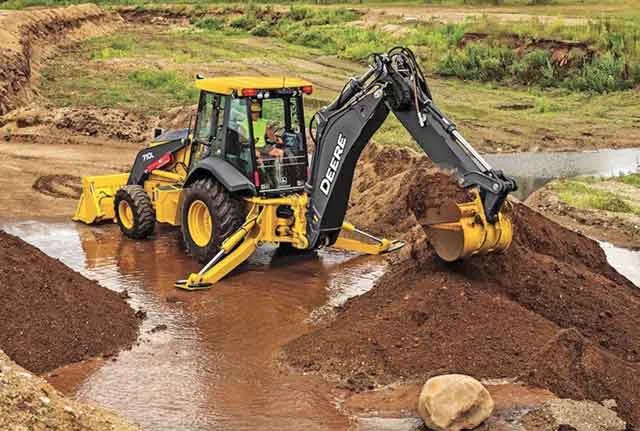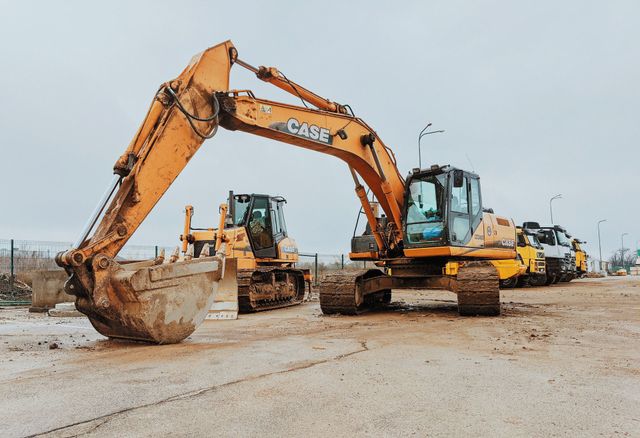Ideal Dump Truck Companies in Ohio - Top-Rated Dump Truck Providers
Ideal Dump Truck Companies in Ohio - Top-Rated Dump Truck Providers
Blog Article
Comprehensive Excavation Approaches: Mastering the Basics for Success
The careful planning, precise execution, and precise focus to detail called for in excavation projects demand a detailed strategy that incorporates different essential elements. The real proficiency lies not just in comprehending these basics yet in perfectly incorporating them to navigate the complexities of excavation jobs with finesse.
Understanding Excavation Project Planning

Successful excavation projects are improved the foundation of thorough and thorough planning. The initial stage of any type of excavation task is the drawing board, where important choices are made that can substantially impact the outcome of the job. Throughout this stage, it is important to gather all appropriate information regarding the website, including topographical studies, soil composition, and any possible dangers that may exist. Recognizing the job extent, timeline, and budget plan restrictions is essential for producing a thorough excavation plan that makes certain the task's success.
One secret aspect of excavation job planning is the development of a comprehensive timeline that describes the sequence of due dates, milestones, and tasks. This timeline functions as a roadmap for the project team, enabling them to track progress and make essential adjustments to make sure the task remains on timetable. Additionally, a well-defined budget that represents all expenses, including devices service, labor costs, and materials, is important for avoiding cost overruns and hold-ups. By thoroughly taking into consideration all these factors during the drawing board, excavation jobs can be performed effectively and effectively, resulting in successful end results.
Dirt Evaluation and Site Assessment
Performing detailed soil analysis and website assessment is a vital action in the preparation stage of any type of excavation task. Dirt analysis includes identifying the make-up, framework, and homes of the soil at the excavation website. This info is vital for comprehending the soil's bearing capacity, wetness content, and possibility for disintegration, which are essential factors in figuring out the excavation methods and devices required for the project.
Site evaluation exceeds soil analysis and includes a broader assessment of the overall website conditions. This evaluation includes determining any kind of possible threats, such as below ground energies, ecological concerns, or unsteady terrain, that can influence the excavation process. By extensively reviewing the website, project supervisors can establish reliable excavation methods that prioritize safety, performance, and environmental protection.
Making use of innovative innovations like ground-penetrating radar, dirt tasting, and drone studies can boost the accuracy and effectiveness of soil evaluation and website analysis. Investing time and sources in these preliminary steps can ultimately save time and protect against expensive hold-ups or complications during the excavation procedure.
Devices Choice and Utilization
Effective excavation jobs count heavily on tactical tools option and usage to ensure optimal efficiency and performance. Selecting the ideal tools for the task is important in taking full advantage of effectiveness and reducing downtime. Variables such as the kind of soil, deepness of excavation, and job scope play a significant duty in figuring out one of the most appropriate equipment for the job handy.

In addition to choosing the appropriate tools, appropriate usage is crucial to task success. Operators has to be educated to deal with the equipment safely and effectively - septic ohio. Routine upkeep checks and prompt repair work aid stop malfunctions and make certain regular review efficiency throughout the job
Safety Actions and Laws Compliance
In the realm of excavation tasks, prioritizing precaution and compliance with guidelines is paramount to making sure a secure and legally click over here now audio functional atmosphere. Safety and security measures incorporate a variety of practices, including carrying out thorough website analyses, implementing appropriate signs and barriers, and giving ample safety training for all workers associated with the excavation process. Adherence to regulations, such as OSHA needs in the United States, guarantees that the excavation project meets the needed requirements to protect employees, bystanders, and the surrounding setting.

Tracking Progression and Adjusting Methods
Just how can project managers properly track the development of excavation tasks and adapt their techniques accordingly to enhance results? Monitoring progress is vital for making certain that excavation tasks stay on track and meet due dates.

Final Thought
To conclude, understanding the fundamentals of comprehensive excavation approaches is crucial for the success of any task. By understanding project planning, analyzing soil and website problems, selecting ideal tools, following security policies, and keeping an eye on progression, project managers can make certain a smooth and efficient excavation process. Carrying out these approaches will cause effective results and minimize potential dangers or setbacks during the excavation task.
The preliminary stage of any kind of excavation home project is the preparation stage, where essential choices are made that can substantially affect the result of the task. Comprehending the project timeline, budget, and scope constraints is critical for creating an extensive excavation plan that ensures the job's success.
Just how can project managers properly track the improvement of excavation projects and adapt their strategies appropriately to maximize results? By carefully keeping track of progress and being willing to adapt approaches, job managers can enhance the general success of excavation jobs.
By understanding task planning, analyzing soil and site conditions, choosing suitable equipment, abiding with safety and security guidelines, and keeping track of progression, task managers can make sure a smooth and effective excavation process.
Report this page